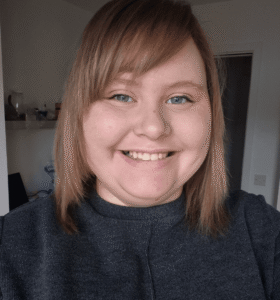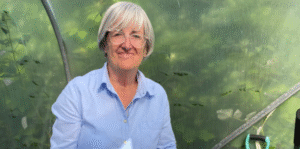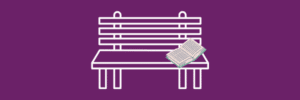Kayleigh: Turning Pain into Purpose
I began working for Penumbra’s Self-Harm Network Scotland two and a half years ago, after studying at university and working in primary schools. When I first read the job description, I felt extremely intrigued – on one hand, I knew that the topic itself was a very poignant one, but I also felt inspired by the possibility of being able to help others by drawing from my own experiences with self-harm. Self-harm is any non-accidental behaviour which causes, or has the potential to cause, harm to a person. A person will often harm themselves as a way of coping with difficult, distressing, or overwhelming feelings or experiences.
I, myself, began self-harming when I was around 14 years old, and it became an on-and-off coping mechanism that continued into my adult life. I received support from multiple different services over the years; however, I had never heard of the term “peer”. When I learnt what a peer was in a mental health setting – a person who uses their lived experience of mental health struggles to support others – I felt stunned that it existed but also felt that it made complete sense. I felt that a job where I could be authentically myself and open with people when talking about this mutual experience was a great fit for me. Whilst the services I used did help me greatly, I also believe that if a service like the SHNS had existed when I was younger, I would have felt an extra level of understanding from others.
I used to feel embarrassment and shame around my past, but now I share it to hopefully encourage and inspire others.
The Self-Harm Network Scotland is a nationwide service that provides 1:1 remote support for anyone living in Scotland aged 12 and up. We are a team of peers who are passionate about providing support to those who need it. In sessions, we use an array of tools and activities to help people understand their own self-harm while exploring alternative coping mechanisms that they can try. We provide training to loved ones of people who self-harm, and to professionals, and by doing so, we hope to reduce stigma and educate. Every evening between 6 pm and 10 pm, we also have a webchat helpline run by peers, which supports people who are struggling with self-harm. Our website also hosts many resources and is where people can self-refer to our 1:1 support or submit an enquiry.
After successfully gaining the role of peer practitioner within the SHNS, I started working, at first, with young people. It was so eye-opening working with those who were the same age as I was when I first used self-harm, and giving them some guidance and space to learn about self-harm. I would often hear from those that I worked with that it helped to talk with someone who “gets it”. I began working with adults shortly after and felt that, although our experiences in life have been different, we were connected by the understanding and empathy of each other’s journey. The people I support are all completely unique; however, the majority have told me first-hand that having a working with a person who has also self-harmed, allows them to be more open without feeling scared of judgement. I have felt deeply moved and felt immense pride in all the people I have supported during my time in this role, and I look forward to helping many more as this vital service continues.
I used to feel embarrassment and shame around my past, but now I share it to hopefully encourage and inspire others to talk more about their mental health. I believe that by sharing our own experiences, we can help others to feel less isolated, encourage them to seek support, and help them realise that reaching their goals is possible.
Many thanks to Kayleigh for sharing her incredible story and for offering an insight into the life-changing work happening at Self-Harm Network Scotland.
Interested in hearing more? Visit Self-Harm Network’s website to hear more stories and how to access their service: Self-Harm Network Scotland.




